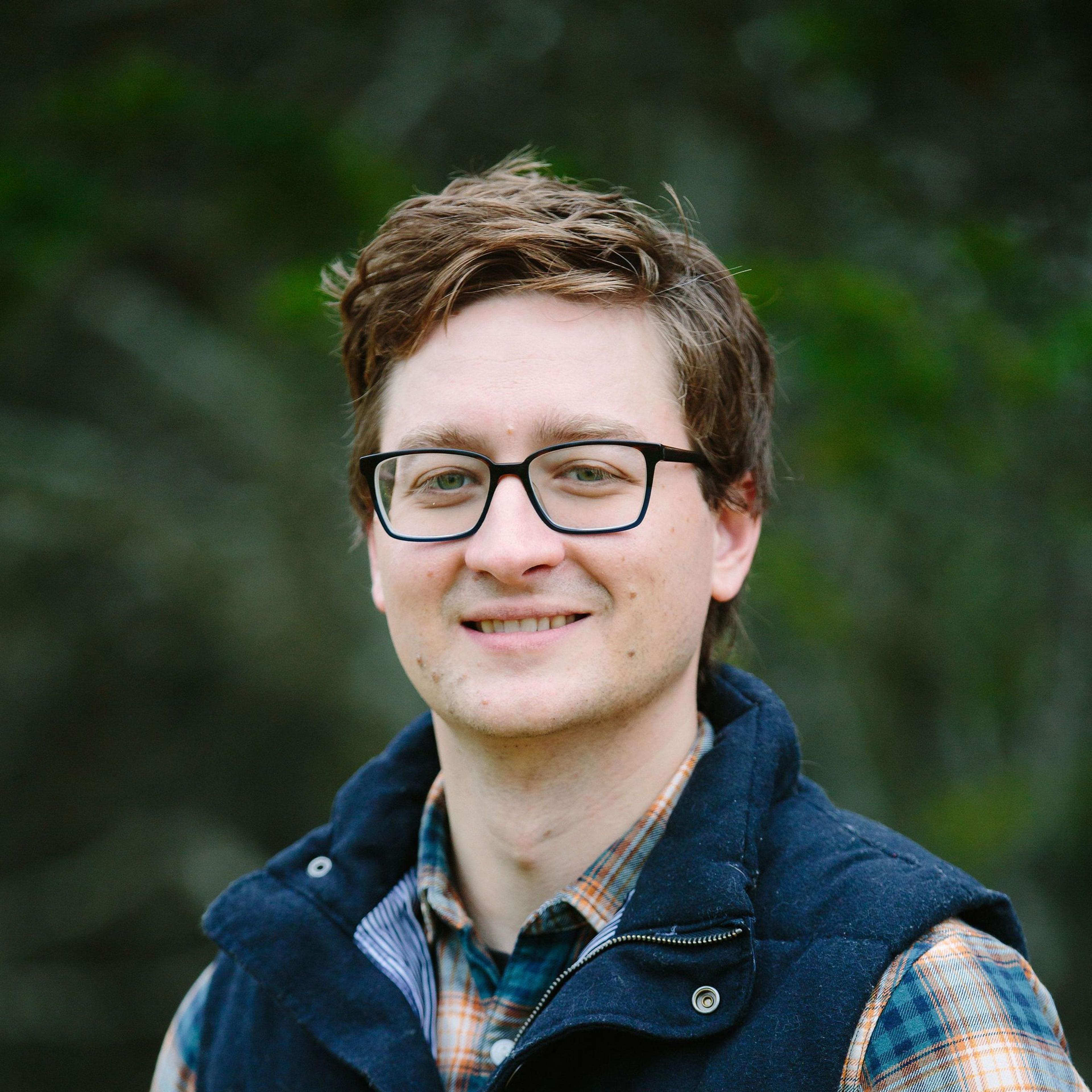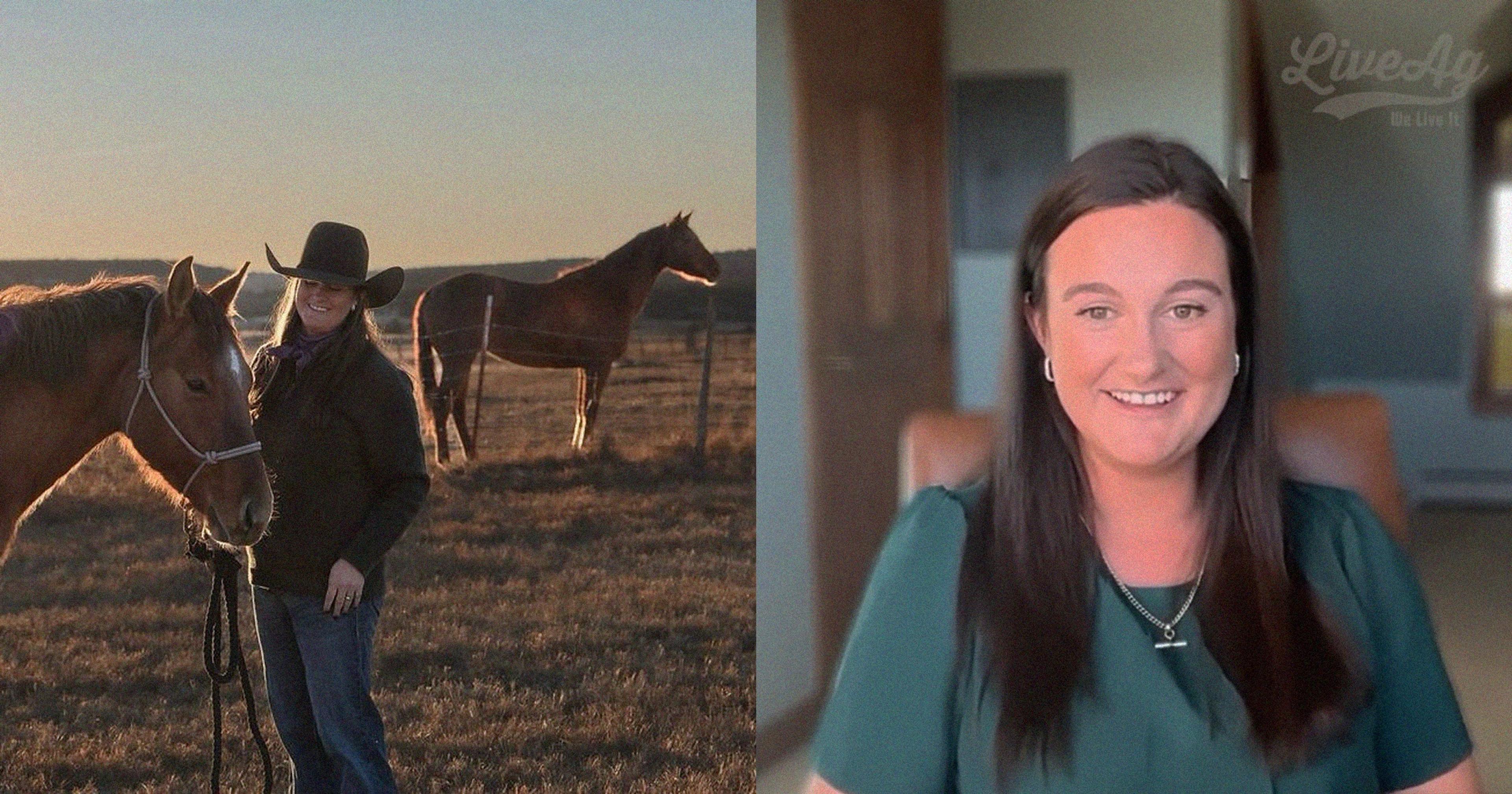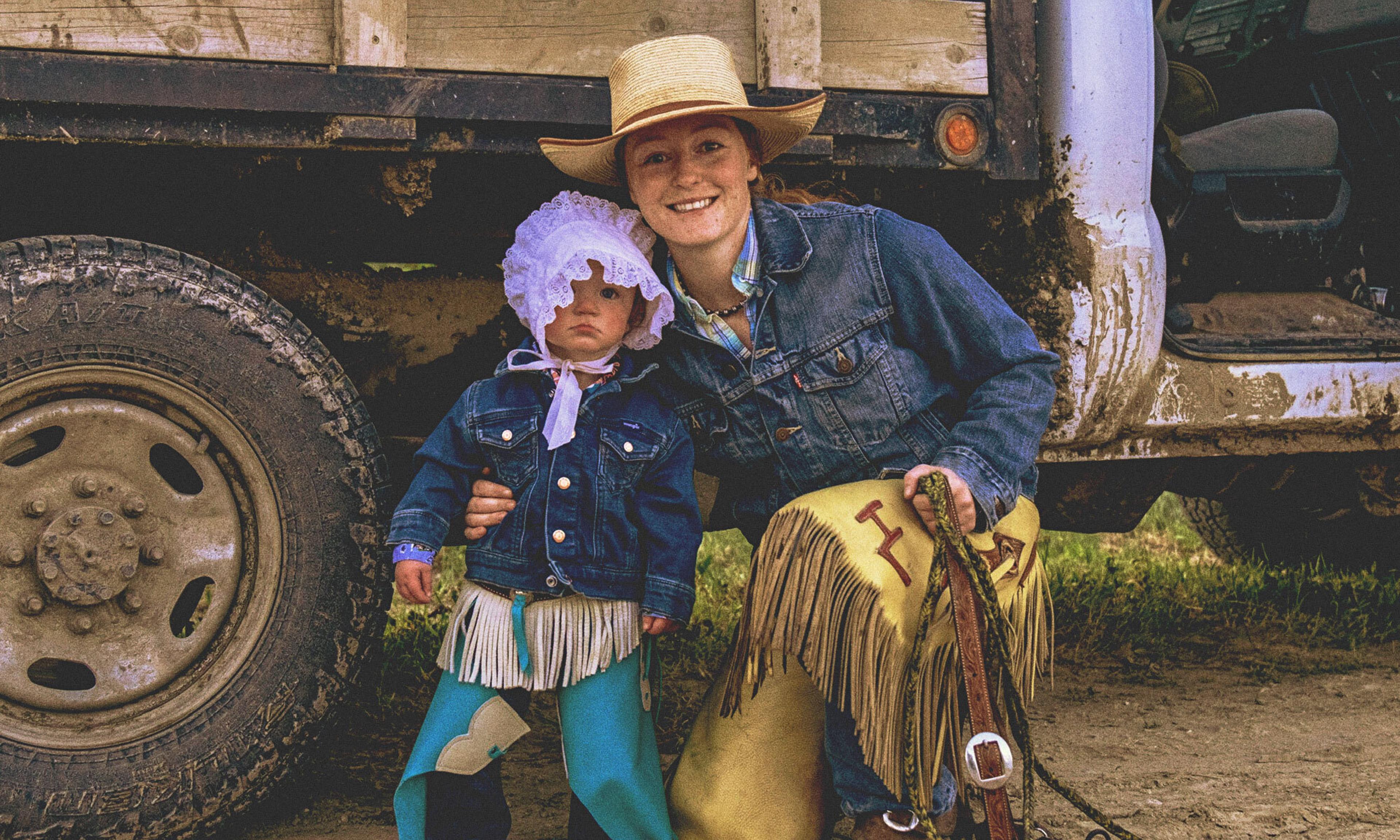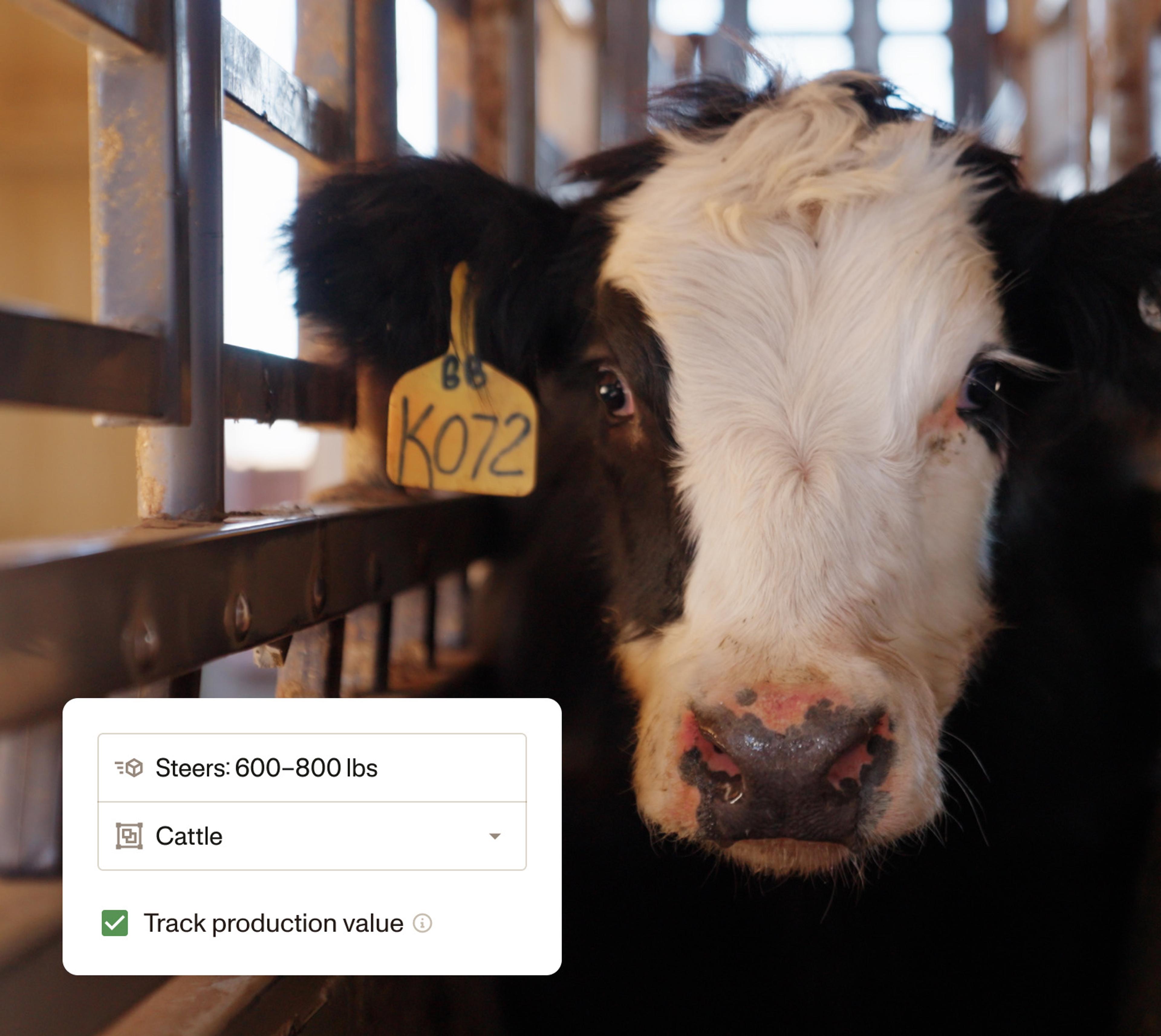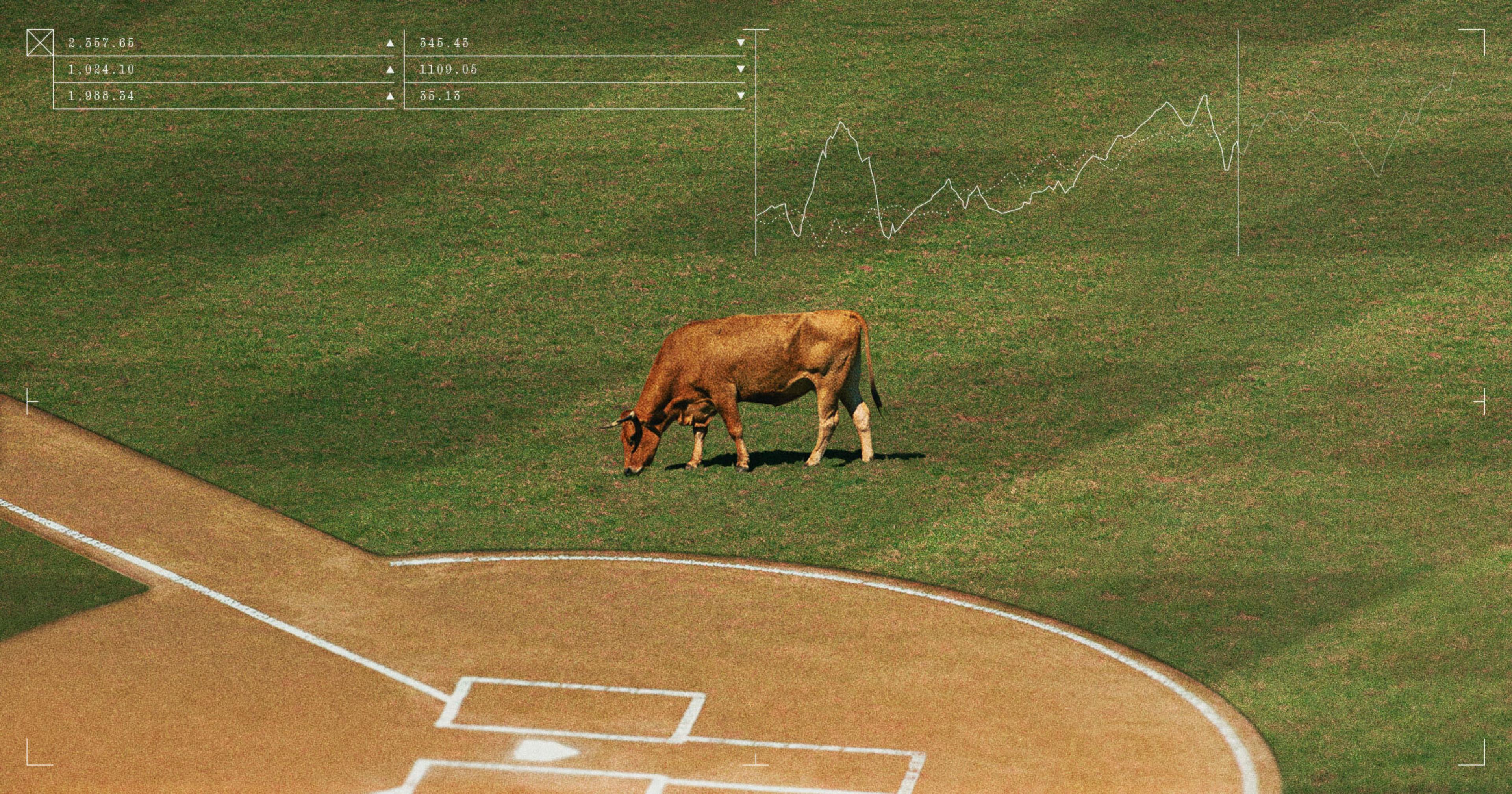Trevor and Nicolette Tuck started Unlikely Farms in their basement, where microgreens pave the way to their permaculture dreams.
Many Americans dream of starting a farm. At Ambrook, we know this because they call and ask us whether there is funding that can help them do it. We love to talk to these aspiring farmers and point them toward organizations, mentors, and grants, but we never pretend that it’s going to be easy. For better or for worse, the logistical and lifestyle realities of farming mean that many of those dreams end up deferred and eventually abandoned.
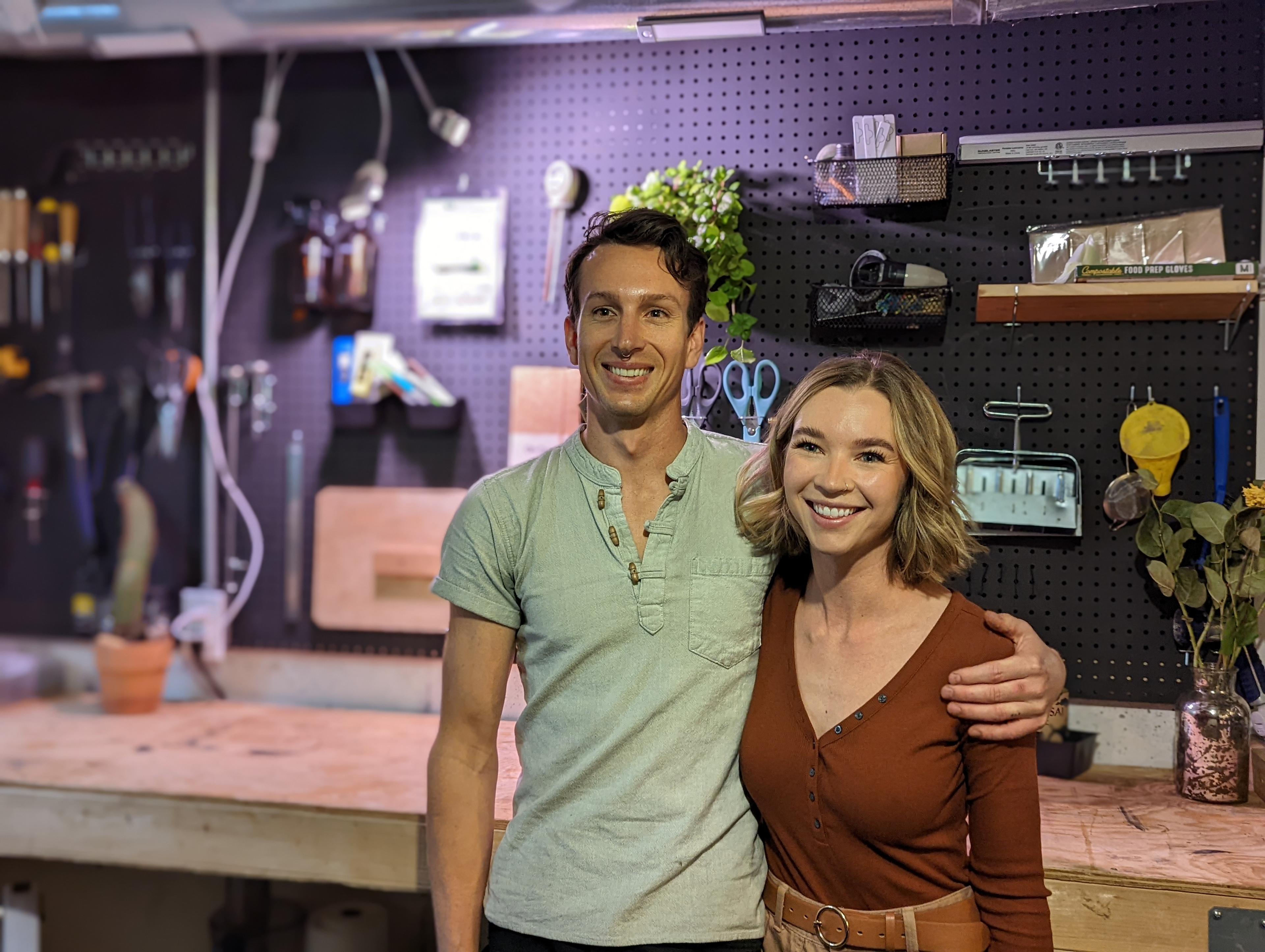
Trevor Tuck was one such aspirant, but he refused to let the dizzying ambition of his dream blunt its execution. Trevor was feeling burnt out by his tech job, so he took a course on permaculture design and immediately knew he had found his calling. Though he has his sights set on farming a big piece of land one day, he and his partner Nicolette asked themselves, “How can we get started in agriculture with what we have right now?” The answer was to grow microgreens in the basement of their Louisville, CO townhome, and so that is where Unlikely Farms began.
“How can we get started in agriculture with what we have right now?”
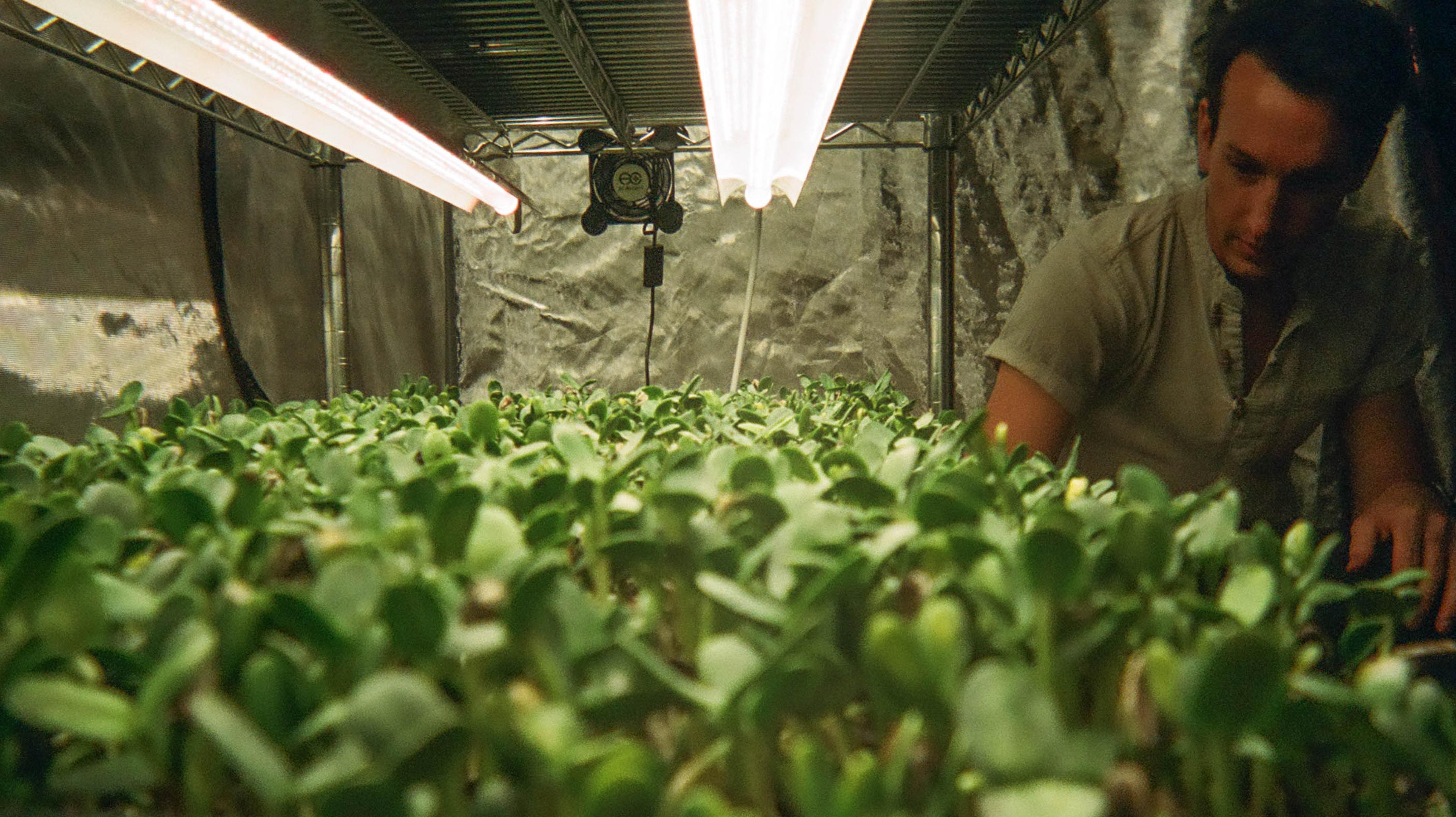
When we visited the Tucks, Trevor greeted us with a platter of avocado toast topped with beautiful piles of Unlikely Farm’s produce – green and purple microgreens that lent a spicy and fresh note to the dish. Microgreens are the barely-sprouted seedlings of any number of plants that most of us know by their mature forms—such as kale, sunflower, and kohlrabi. Having just leafed out from the seed, the greens have all the rich flavors and nutrients of the grown plant packed into a tiny, visually appealing package. These properties make them prized by chefs looking to elevate their plating and by health-conscious consumers looking to enrich their diets. One of Unlikely Farms’ early customers was the head chef for the athletics department at the University of Colorado - Boulder. Trevor knew that the business was taking off when after a few initial orders, the chef told him, “As much as you can grow, we’ll take it.”
“As much as you can grow, we’ll take.”
As it turned out, Trevor could grow a lot. For Unlikely Farms, the miracle of microgreens is that their production requires very little space and time. A 10-by-10-foot area of the Tucks’ basement is dedicated to the operation, with only about one-third of that footprint taken up by the insulated growing tent. Trevor grows each variety of green in its own tray and tells us that most of them take only about seven days to grow from seed to harvest-ready.
Other inputs are minimal, and if Trevor can help it, recycled. Seeds are Unlikely Farms’ greatest cost, but soil is made in-house in a giant rotating composter. All of the plant matter left over when the microgreens are harvested gets returned to the composter where microorganisms convert the mixture back into nutrient-dense “living soil”. Unlikely Farms has grown so quickly that the Tucks don’t have enough of their own household compost to keep up and have started a program to divert their neighbors’ food waste away from the landfill and into the Unlikely Farms composter. Finding ways to turn waste into something valuable is one of Trevor’s favorite parts of his new job.
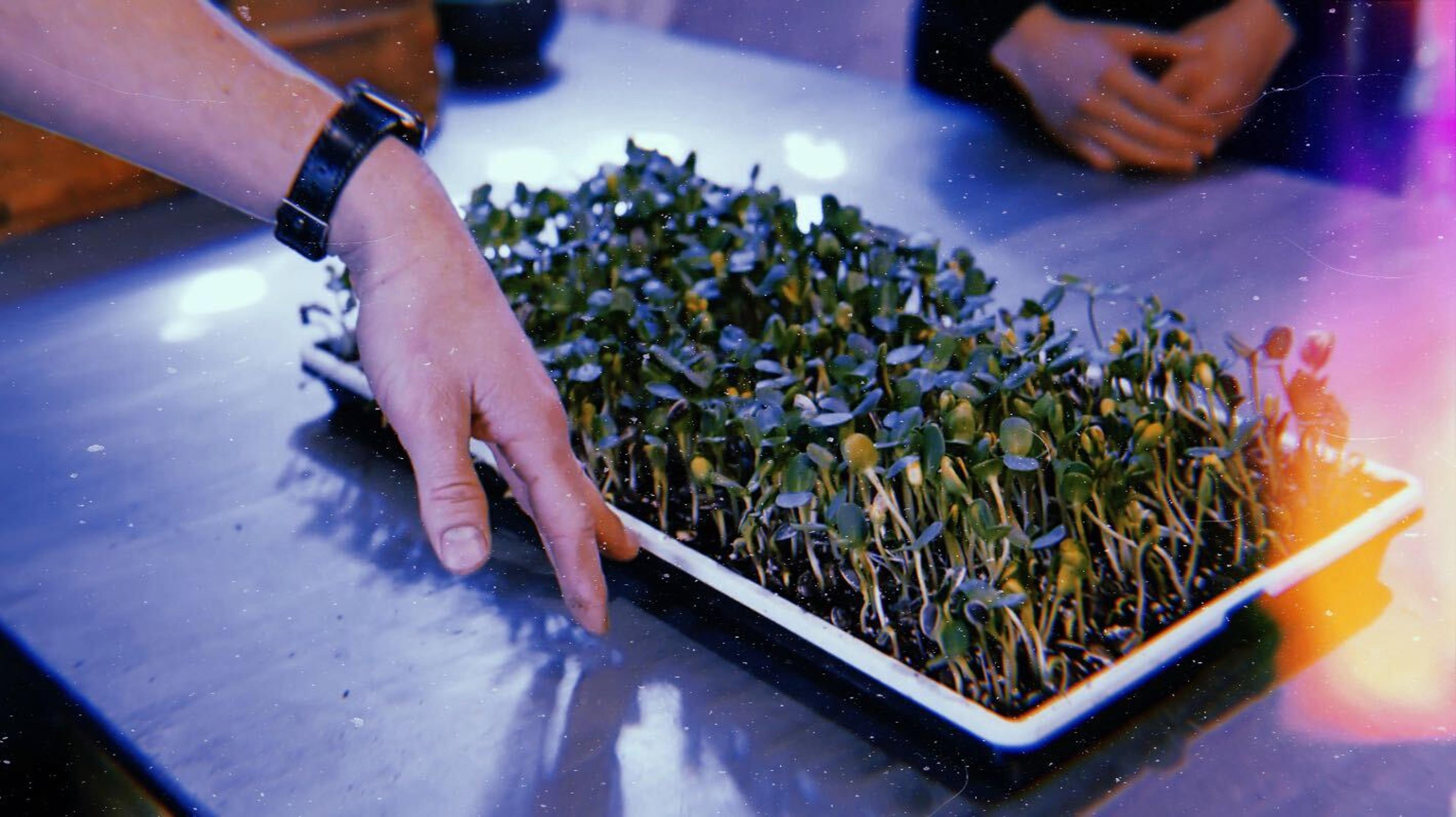
Tracking input costs and watching them go down as he optimizes his microgreen growing process is one of the reasons that Trevor and Nicolette love using Ambrook. Each sale and expense that comes through Unlikely Farms gets distributed to the proper Schedule F category, but also gets attributed to the specific product being grown. Trevor knows how much he can sell an ounce of microgreens for, and he also knows his marginal cost of production. He’s a modest man, but pride shines through as he shows off a tray of harvest-ready sunflower greens and tells us, “On microgreens, our profit margin is about 70%.”
“On microgreens, our profit margin is about 70%.”
Unlikely Farms was one of the very first pilot customers of Ambrook’s banking and bookkeeping services. Trevor had just started operations in December of 2021 and was looking for a bank account to keep his personal finances separate from the business. More importantly, he was looking for a finance app that would give him peace of mind as he grew Unlikely Farms.
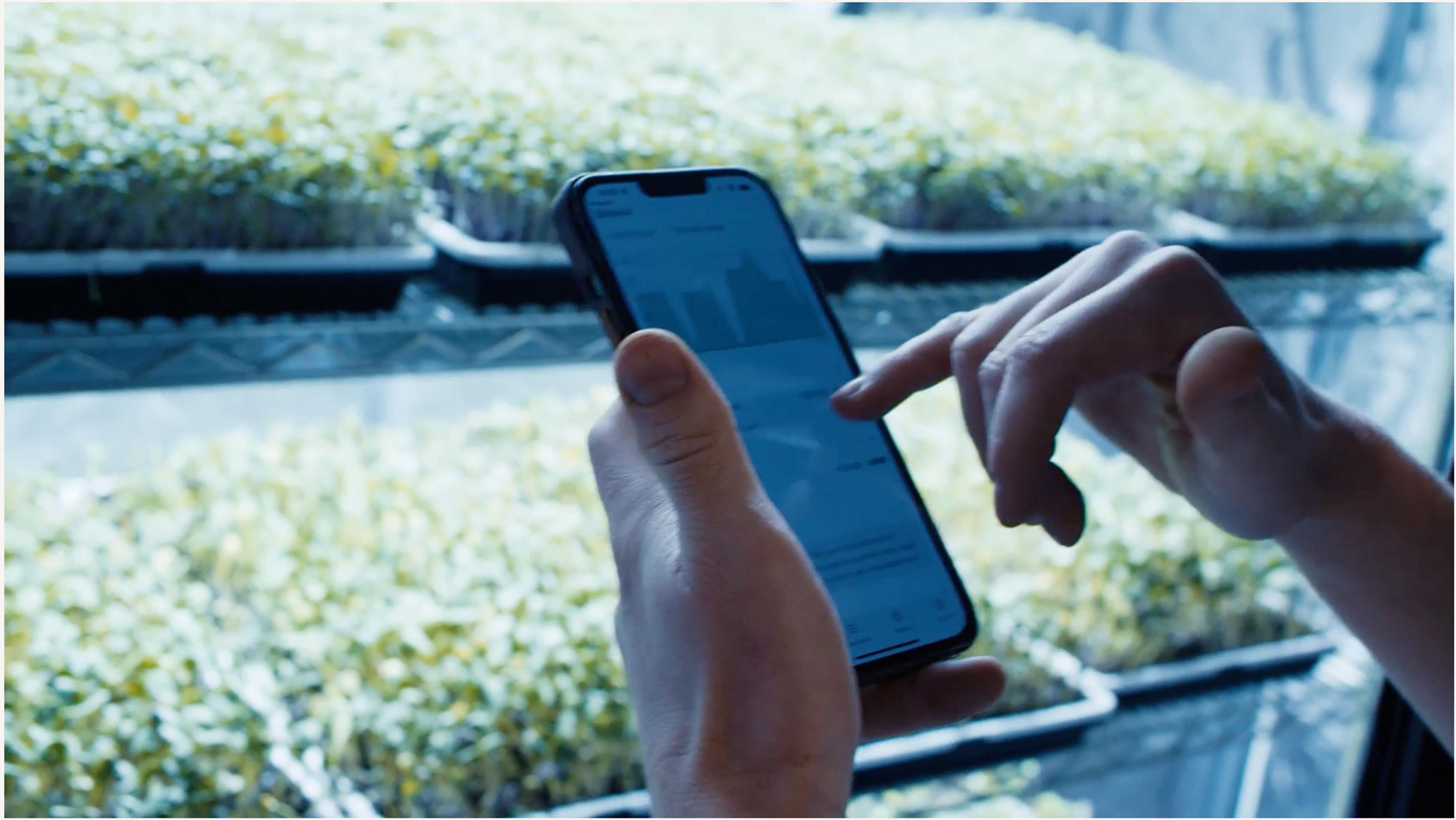
“The app has been a game-changer,” Trevor says, “It’s really easy to check in and see how much money I have to spend on the farm.” Beyond cash flow management, Trevor and Nicolette also use Ambrook’s native Schedule F chart of accounts for diligent bookkeeping. The software makes the usually painful process easy to work through, and leaves them well prepared to handle the application and compliance requirements of the grants and loans that they hope will help Unlikely Farms expand.
“The app has been a game-changer.”
Microgreens were the start, but Unlikely Farms has a much bigger vision. On the back of his experience with microgreens and his permaculture credentials, Trevor landed a contract to design and install permaculture production on a nearby 27-acre property. He told us about plans to plant 100 trees on Earth Day on the land, which was burned almost completely barren in the recent Marshall Fire. Like the detail he lavishes on his microgreen production, each tree and its position will be meticulously planned. “We’re not just going to plant trees to have trees,” Trevor says. “They are going to be windbreaks or for food, and every tree will have multiple functions.” Permaculture is a discipline to Trevor, but it’s also a way of thinking about not being wasteful, and connecting people back to the land from where their food comes.
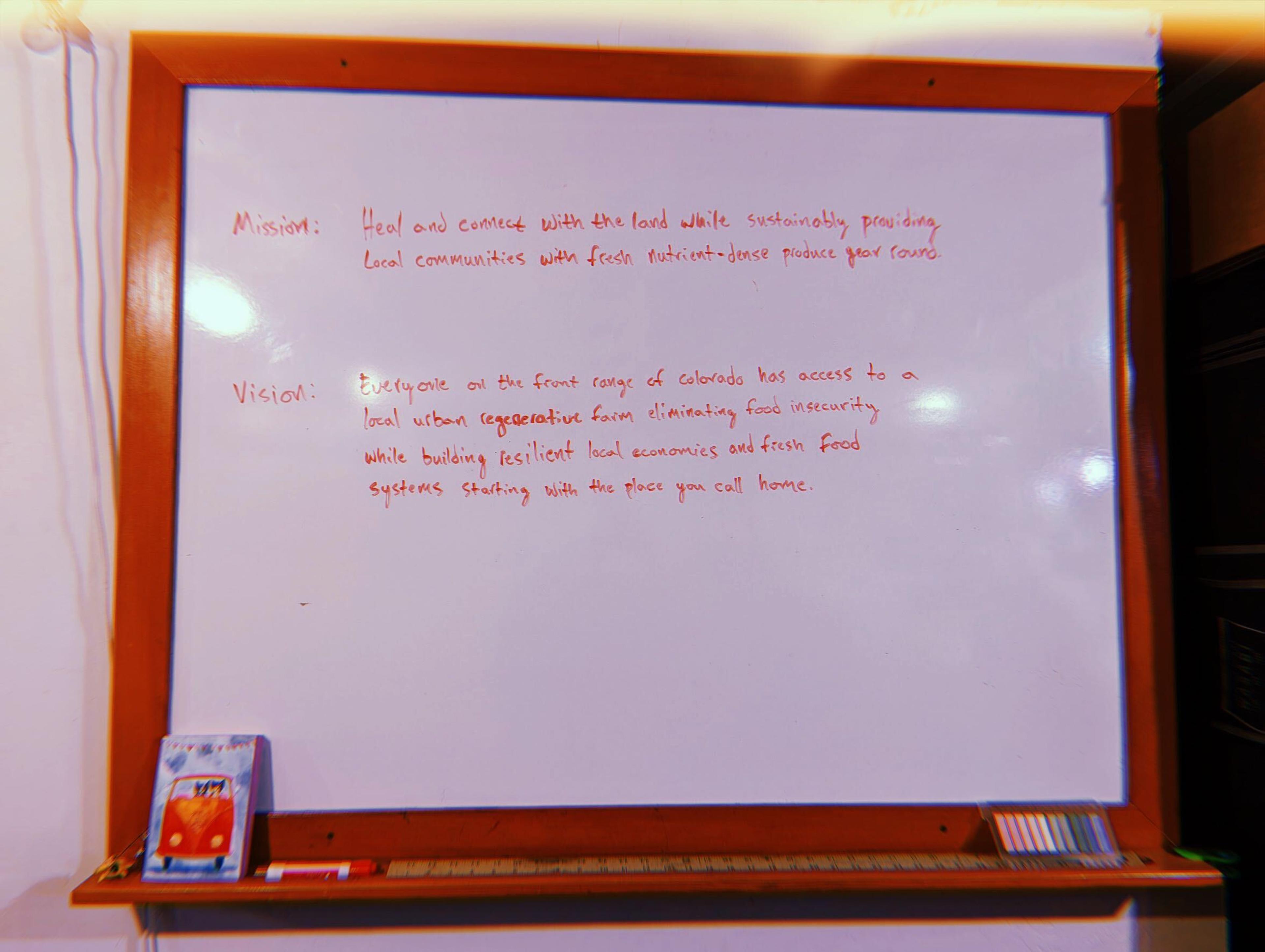
Trevor comes from a long line of farmers who worked the same land in Kansas for generations before Trevor’s parents brought him to Colorado. He’s proud to carry on that legacy, but Trevor and Nicolette starting their farm in urban Louisville meant having to define their own relationship with agriculture. The name Unlikely Farms takes its meaning from this conviction — that anyone who is passionate about agriculture can farm anywhere, no matter how unlikely it would seem at first. Trevor and Nicolette hope to inspire others like them who yearn for a lifestyle more connected to the land, but don’t have a family farm to start from. In Nicolette’s words: “If we could do it here, anyone can do it anywhere they want to.”
“If we could do it here, anyone can do it anywhere they want to.”
If you live in the front range of Colorado, you can order Unlikely Farms microgreens on their website. If not, you can still follow the Tucks‘ journey on Instagram and TikTok.
